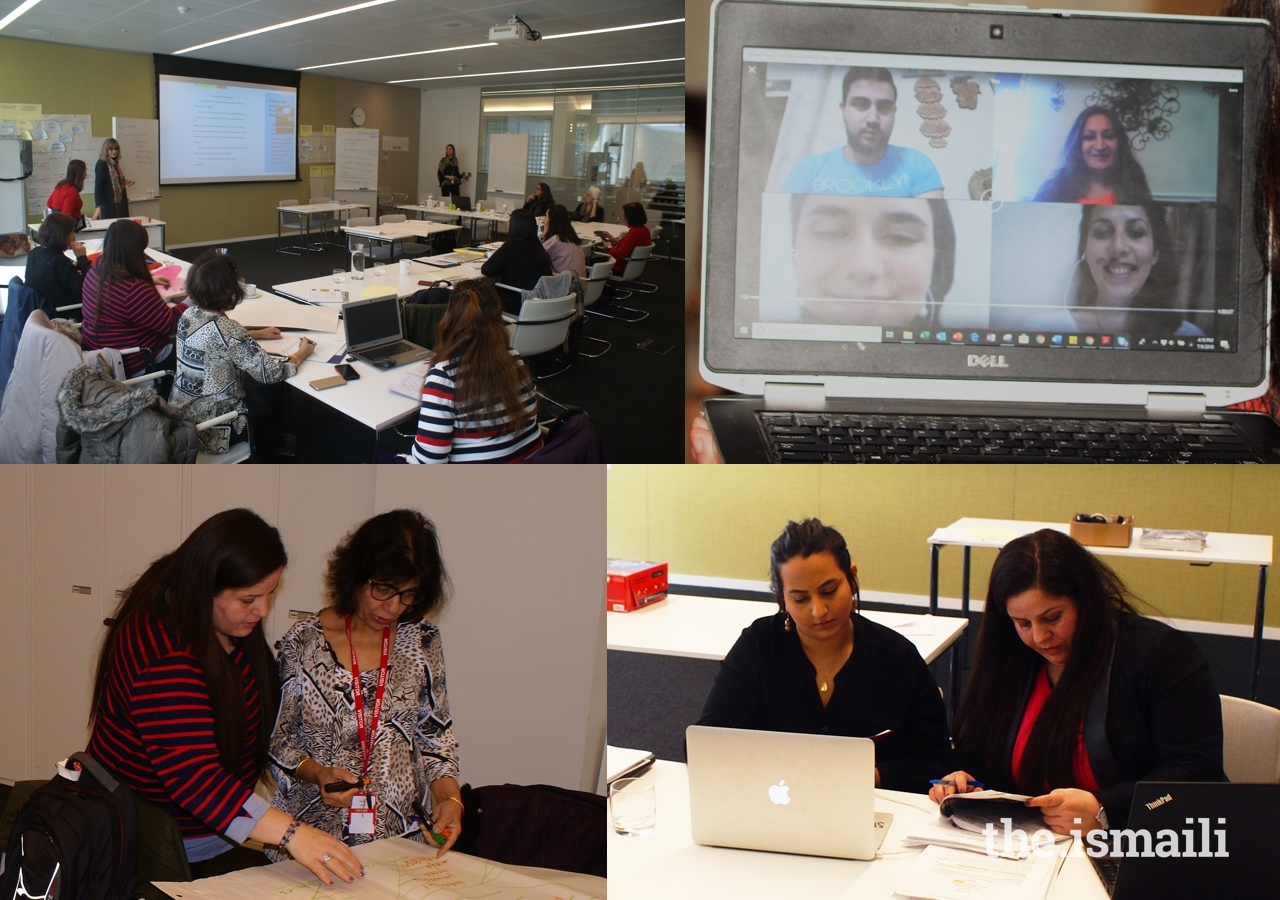At the Commencement Ceremony of the American University in Cairo in 2006, Mawlana Hazar Imam had said, “Once we have acquired knowledge, it is important that the ethical guidelines of faith be invoked, helping us apply what we have learned to the highest possible ends. And it is also important that those ends be related to the practical needs of our peoples.”
Generating and utilising knowledge to improve the lives and capabilities of others, and empowering individuals with the tools to create a better future, has been a long-standing principle of The Institute of Ismaili Studies (IIS). One such example is the support and uplift given to the potential applicants of IIS’s graduate programmes in countries, which include significant rural and mountain populations. The IIS is utilising technology alongside an international pool of professional teachers who have offered their Time and Knowledge to expand reach and provide greater access to quality education globally.
Students from Afghanistan, Iran, Pakistan, Russia, Syria, and Tajikistan are receiving training to improve their English language and Academic Literacy skills to a Master’s level standard, in preparation apply for the IIS’s Secondary Teacher Education Programme (STEP). Given the population of the Jamat in these countries, the need for professional secondary-level religious education teachers is urgent. Time and Knowledge Nazrana (TKN) language and academic literacy teachers from Canada, France, Kenya, Pakistan, Tajikistan, UK, and the USA, are tirelessly working via remote teaching methods, using platforms such as WhatsApp, email, Skype, and Zoom around multiple time-zones to help prepare students in a range of subjects for their International English Language Testing System (IELTS) exams and beyond.
Being able to cut across boundaries and access quality teachers allows students to grow, learn, and have more opportunities to study topics which are more readily available to those in the Western world. For Afghans outside of Kabul, some Iranians outside of Tehran and Mashhad, and some Syrians outside of Salamieh, for example, TKN teachers are the only available preparation that they have for applying to STEP.
Speaking about his experience, Faridoon Haidary, from Baghlan, Afghanistan, who was supported by a team of TKN teachers before successfully gaining admission and completing STEP at the IIS said, “The TKN support for improving my academic skills was instrumental during my preparation for the STEP programme. It was a critical juncture in my life towards a new career path. I remember that I used to have multiple sessions via Skype with my tutors on speaking and reading skills, academic writing, and being reflective. They would read my assignments and provide written feedback through email which would then be followed up with Skype sessions to help me clarify if I had any questions and concerns.”
“Looking at the effort and keenness to help me, I also felt very much obliged to give my best and work dedicatedly to meet their expectations. One of the highlights and aims of the Post Graduate Diploma at the UCL Institute of Education is to make us reflective. I feel that my first step to be a reflective individual started with my TKN tutors.”
Depending on their learning journey, students are assigned TKN teachers for Academic Literacy, Global Issues, English Language, IELTS, and Book Group. Time is a scarce and valuable commodity; yet the pool of TKN volunteers are selflessly giving of themselves and applying their skills for the benefit of others. Reflecting on her experience, Laila Premji, a TKN Book Group teacher from Toronto, Canada, remarked, “In this entire teaching-learning process, technology has played the most important part. In addition to the online sessions, we're constantly in touch with each other through WhatsApp and email and I am able to regularly follow up with my students.. They have now developed a natural tendency of making connections between their lives and the text and this is helping them with internalising any piece of literature they come across. I have observed an improvement in their vocabulary and fluency as well.”
“Personally, I have gained a lot from this experience. I wasn't aware of the Book Group teaching at all and this TKN experience has taught me a skill that has enriched my personal and professional life. At home, my family has now started discussing children's stories and novels and it's amazing to see how we are bonding strongly in this fast-paced world.”
In March 2019, TKN teachers from around the globe were invited to attend a week-long training course at the Aga Khan Centre in London, at which TKN teachers were inducted into their roles and responsibilities – helping them to better understand the profiles and journeys of the applicants, as well as the expectations of STEP. Speaking about the value and contributions of the TKN volunteers, Rosa Barugh, Academic Support Programmes Advisor at the IIS commented: “Utilising volunteers has helped us plug the gaps between what local service providers in priority countries are able to offer, and the requirements of STEP. Our team of TKN qualified teachers has enabled a huge pool of would-be STEP candidates to obtain targeted coaching and support. We are really hoping to see an increase in candidates who are ready to meet the rigours of STEP this year, thanks to the TKN volunteers.”
In 2019 alone, over twenty TKN teachers have provided language support to fifty-five students globally, whilst a further seventeen teachers are in the process of joining the team. Learn more about the Secondary Teacher Education Programme (STEP) here.








